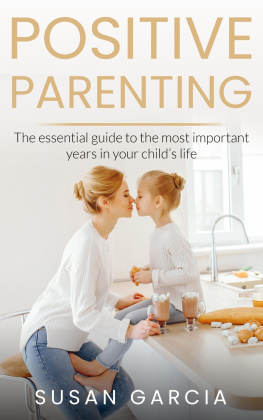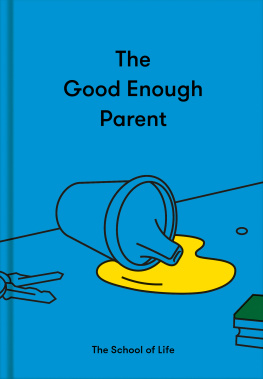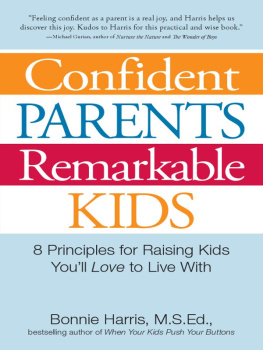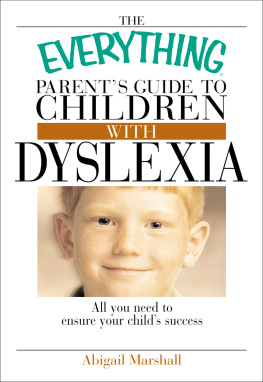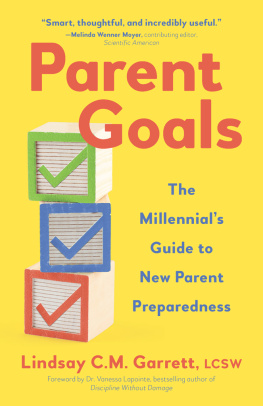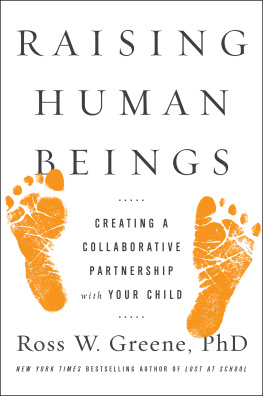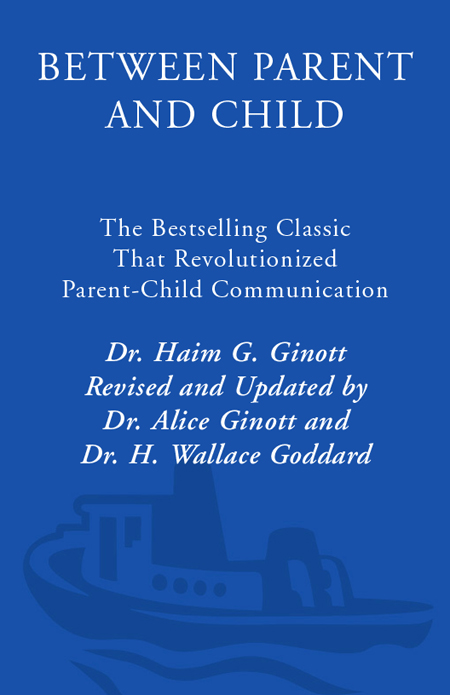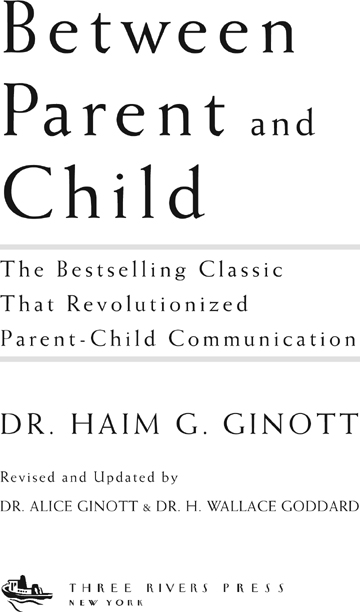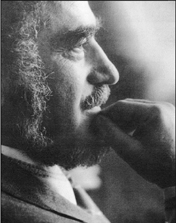To the memory of my younger brother who died at the age of twenty-one, trying to save his besieged comrades.
Acknowledgments
We are grateful to friends and colleagues who read the manuscript and contributed suggestions and criticism. Special thanks to Gerald Gross, for reading some of the manuscript and for his helpful suggestions; to Claudia Gabel, our editor, whose patience and helpful suggestions have made the publishing process so much easier and more pleasant; to Betsy Rapoport, who saw the benefit of reissuing this book; to Theodore Cohn, for his patience, his help, and his valuable editorial comments; to our children and their children, who helped us appreciate the importance of caring communication; to Nancy Goddard, who has been a model of compassionate parenting; to Emily, Andy, and Sara, who have taught us priceless lessons. And, most of all, to the parents who shared with us their feelings and experience, we acknowledge our greatest debt.
H AIM G. G INOTT
A LICE G INOTT
H. W ALLACE G ODDARD
Contents
CHAPTER 1
The Code of Communication: Parent-Child Conversations
CHAPTER 2
The Power of Words: Better Ways to Encourage and Guide
CHAPTER 3
Self-defeating Patterns: There's No Right Way to Do a Wrong Thing
CHAPTER 4
Responsibility: Transmitting Values Rather Than Demanding Compliance
CHAPTER 5
Discipline: Finding Effective Alternatives to Punishment
CHAPTER 6
Positive Parenting: A Day in a Child's Life
CHAPTER 7
Jealousy: The Tragic Tradition
CHAPTER 8
Some Sources of Anxiety in Children: Providing Emotional Safety
CHAPTER 9
Sex and Human Values: Sensitive Handling of an Important Subject
CHAPTER 10
Summing Up: Lessons to Guide Your Parenting
After my death, eulogize me thus
There was a man and he is no more
He died before his time
The song of his life was in the middle interrupted
One more song he had
And now that song is lost forever
The sorrow of it
A FTER M Y D EATH ,
by H AIM N ACHMAN B IALIK
Dr. Haim Ginott died on November 4, 1973, after a long and painful illness. He was fifty-one years old. A few weeks before he died he looked at the first book he wrote, Between Parent and Child, and said to me, Alice, you'll see, this book will be a classic. His prediction has come true.
Haim Ginott was a clinical psychologist, child therapist, and parent educator whose booksGroup Psychotherapy with Children, Between Parent and Child, Between Parent and Teenager, and Teacher and Childrevolutionized the way parents and teachers relate to children. The books were bestsellers for more than a year and were translated into thirty languages. In The Authoritative Guide to SelfHelp Books by John W. Santrock, Ann M. Minnett, and Barbara D. Campbell, Ginott's books received the highest rating (strongly recommended) and appeared on the short list of best self-help books.
He was the first resident psychologist on the Today show; wrote a weekly column, syndicated internationally by King Features; and wrote a monthly column for McCall's magazine. He also served as adjunct professor of psychology at the Graduate School of New York University and the postdoctoral program at Adelphi University.
The communication skills that he advocates in his books help adults enter into the world of children in a compassionate and caring way and teach them how to become aware of and respond to feelings.
As he said in one of his speeches, I'm a child psychotherapist. I treat disturbed children. Suppose I see children in therapy one hour a week for a year. Their symptoms disappear, they feel better about themselves, they get along with others, they even stop fidgeting in school. What is it that I do that helps? I communicate with them in a caring way. I use every opportunity to help them develop selfconfidence. If caring communication can drive sick children sane, its principles and practices belong to parents and teachers. While psychotherapists may be able to cure, only those in daily contact with children can help them to become psychologically healthy.
Thus he started parent-education and guidance groups to help parents learn how to be more caring and effective with their children, to become aware of their own feelings, and become more understanding of their children's feelings. He wanted them to learn how to discipline without humiliating, how to criticize without demeaning, how to praise without judging, how to express anger without hurting, how to acknowledge rather than argue with their feelings, perceptions, and opinions. How to respond so that children would learn to trust their inner reality and develop self-confidence.
Before he became a psychologist, Dr. Haim Ginott was a schoolteacher in Israel. He was a graduate of David Yellin Teachers' College in Jerusalem. After teaching for a few years he realized that he was not sufficiently prepared to deal with children in the classroom. It was then that he decided to come to Columbia University Teachers College, where he received his doctorate.
Even though Haim Ginott died at a young age, he enjoyed a creative and accomplished intellectual life. His innovative ideas of communicating with children that he disseminated in his books, lectures, and columns reverberated not only in the United States but all over the world. He influenced the development of parenting workshops where parents and teachers learn how to treat children in a sensitive and caring way.
Although English was not Haim Ginott's native tongue, he loved the English language. He loved it as a poet, using it sparingly and with precision. Like the early sages he dispensed his wisdom in parables, allegories, and epigrams: Don't be a parent, be a human being who is a parent.
A story is told about a rabbi who died at the age of fifty. When the family returned from the funeral, the eldest son said, Our father had a long life. Everyone was aghast. How can you say that of a man who died so young? they asked. Because his life was full; he wrote many important books, and touched many lives.
That is my consolation.
A LICE G INOTT , P H.D .
2003
CHILD, GIVE ME YOUR HAND
THAT I MAY WALK IN THE LIGHT OF YOUR FAITH IN ME
H ANNAH K AHN
Introduction
No parent wakes up in the morning planning to make a child's life miserable. No mother or father says, Today I'll yell, nag, and humiliate my child whenever possible. On the contrary, in the morning many parents resolve, This is going to be a peaceful day. No yelling, no arguing, and no fighting. Yet, in spite of good intentions, the unwanted war breaks out again.
Parenthood is an endless series of small events, periodic conflicts, and sudden crises that call for a response. The response is not without consequence: It affects personality and self-regard for better or worse.
We would like to believe that only a disturbed parent responds in a way that is damaging to a child. Unfortunately, even parents who are loving and well meaning also blame, shame, accuse, ridicule, threaten, bribe, label, punish, preach, and moralize.


